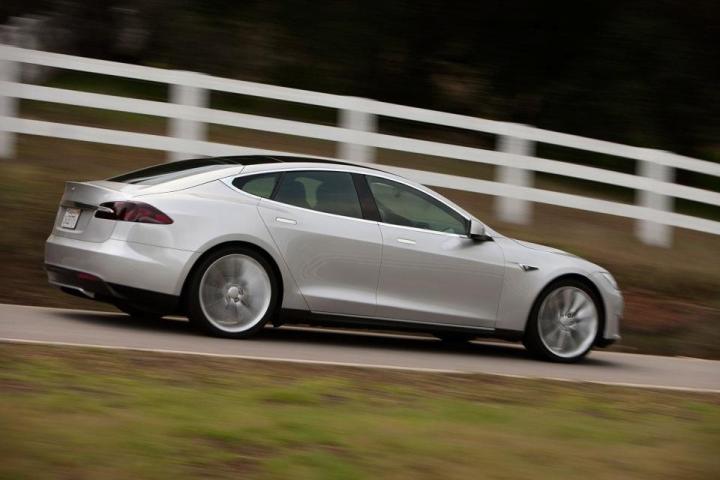
Elon Musk is the king of one-upmanship. It seems that virtually whenever an automaker brags about a forthcoming technical breakthrough, Musk is compelled to take it one – or several – step further. And today is no different.
Just last week, Mercedes-Benz said it would have autonomous vehicles for sale by 2020, which is an ambitious claim by any standards. But in an interview with the Financial Times (by way of Automotive News), Tesla Founder and CEO, Elon Musk, said that his car firm would produce an autonomous car within the next three years.
We would laugh at any other upstart automaker for making such an outlandish claim – but not Musk and not Tesla.
Musk says that the autonomous Tesla’s will allow the driver to turn over 90 percent of the driving duties to on an onboard computer. A fully autonomous Tesla, Musk said, would be a few years further down the line.
Both Mercedes-Benz and BMW have semi autonomous cars. BMW’s autonomous tech isn’t available in the U.S. but Mercedes offers partially autonomous driving systems on the new E-Class and the all-new S-Class.
Musk isn’t simply blowing smoke, either. Tesla has posted on its online jobs board a position for an advanced driver assistance systems controls engineer who will assist “Tesla’s effort to pioneer fully automated driving.”
It’s not just Google, Tesla, and Mercedes working on autonomous driving, plenty of other groups are trying to sort self-driving, too. Oxford University also has an inexpensive self-driving system it calls Robot Car that will pilot a car without driver input.
Musk isn’t just going to go out and buy autonomous tech. No, he insists Tesla will build its own distinctive system. Seems like the hard way to do it. But does Musk ever do anything the easy way?2
Editors' Recommendations
- Tech giant reveals nice price for new EV to take on Tesla
- Here’s how Ford will give EV customers Tesla Supercharger access
- Waymo robotaxi attacked and set on fire in San Francisco
- Cruise woes prompt production halt of fully driverless van
- Cruise’s robotaxi service suspended by California regulator


